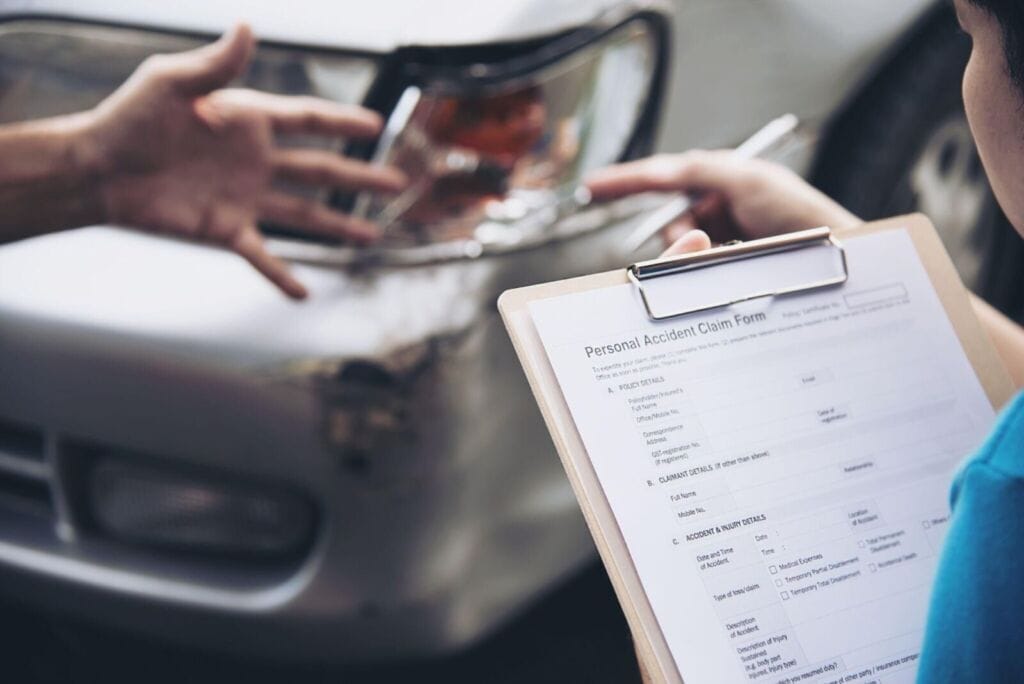When filing a car accident claim, most people think it simply involves reporting the accident, signing a few forms, and sitting back and waiting for a check. However, the process is rarely this simple. Insurance companies are more interested in saving money than giving it away. In other words, the process can quickly feel like a steamroller of details to navigate.
Let’s think of it this way: you are numb with shock from the crash, your car is at the body shop, your medical bills are mounting, and to make matters worse, now you must speak with adjusters who seem to be searching for ways not to pay.
This is where proper counsel is more important than you can imagine. The right accident lawyer from Miller & Steele makes all the difference in protecting your rights and ensuring you don’t settle for less than what you are due.

First Steps After an Accident
The claim process starts the moment the incident becomes an accident. What you do right after the collision and in the following hours or days can affect the strength of your claim.
- Call the police. A police report gives an official record of the accident. Most states require you to report crashes involving injury, death, or significant property damage.
- Obtain medical assistance. You may feel well initially, but whiplash or concussion injuries can manifest days later. Medical records will play a major role in evidencing the link between the injuries and the collision.
- Exchange information. Obtain the other driver’s name, contact information, license number, and insurance information. Make sure to do the same for any witnesses (if there are any).
- Take pictures. Document the scene, damage to all vehicles involved, road and weather conditions, and visible injuries. Photos and videos can help settle disputes later.
LOCAL NEWS: 10 things you may not know are manufactured in Arizona
INDUSTRY INSIGHTS: Want more news like this? Get our free newsletter here
Dealing With Insurance Companies
Once you report the accident to your insurer, an adjuster will contact you. Their job is to investigate and decide what your claim is worth. It’s common to feel pressure when speaking with them.
Keep these points in mind:
- Adjusters may record your statement. Be cautious and stick to the facts.
- Do not admit fault, even casually. A simple “I’m sorry” can be used against you.
- You can decline to give a recorded statement to the other driver’s insurer.
Insurance laws vary, but most states follow either a fault system or a no-fault system. In fault states, like Texas, the driver who caused the accident pays. In no-fault states, like Florida, your own insurer covers your medical bills through Personal Injury Protection (PIP), regardless of fault. Florida Statute §627.736 requires drivers to carry at least $10,000 in PIP coverage.
Evidence That Strengthens Your Claim
Strong claims support themselves based on evidence—not merely your word. For settlement claims, the following is usually most notable:
- Police reports.
- Medical records and bills.
- Witness statements.
- Photos and videos.
- Pay stubs showing lost wages.
How Compensation Is Calculated
When making a claim, compensation is usually divided into two categories:
Economic damages
- Medical expenses (past and future)
- Lost income.
- Property damage.
Non-economic damages
- Pain and suffering.
- Emotional distress.
- Loss of enjoyment of life.
What Happens if the Case Goes to Court?
Most claims settle before trial. But if the insurer refuses to pay fairly, your lawyer may file a lawsuit.
Here’s what to expect:
- Complaint filed: Your lawyer explains your case to the court.
- Discovery: Both sides exchange evidence and question witnesses.
- Motions and hearings: The court decides legal issues before trial.
- Trial: A judge or jury decides fault and damages.
Trials can take months or longer, but they often push insurers to settle to avoid the risk of losing.
Key Takeaways
- The claim starts at the scene. Police reports, medical care and treatment, and photographs are the basis of even the most straightforward claim.
- Insurance adjusters only care about their company—not your welfare. Proceed with caution and do not admit any fault.
- Evidence is critical—medical records, testimony from witnesses, and evidence of the claim’s financial circumstances are paramount.
- Compensation extends beyond simple car repairs. Medical bills, lost wages, and pain and suffering can all be included as compensation for the accident.
- Timelines are important considerations. If you fail to file before the statute of limitations expires, you will forfeit your right to file a claim.




